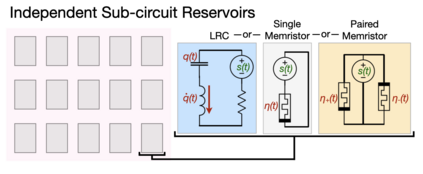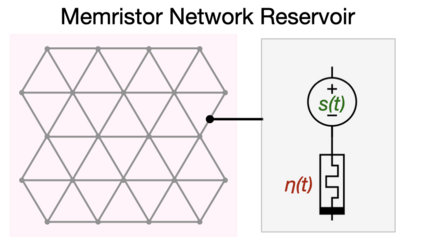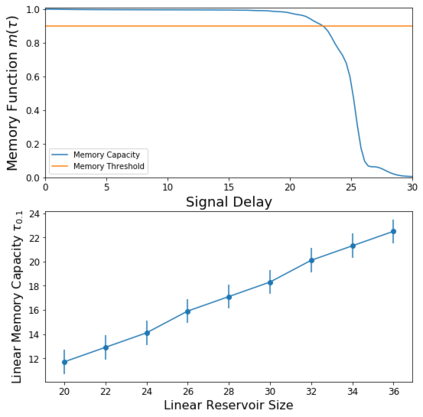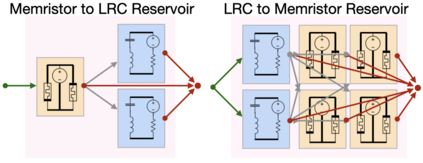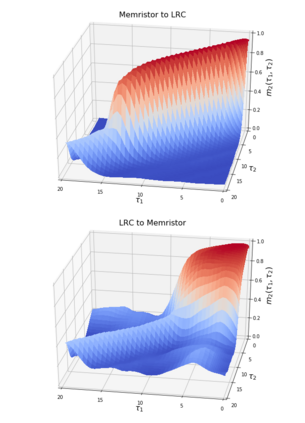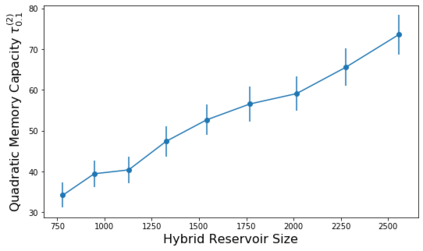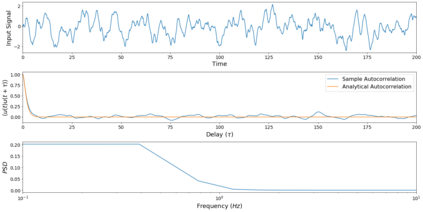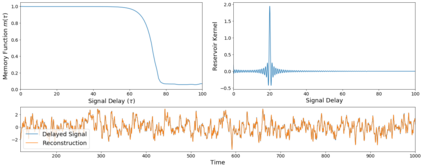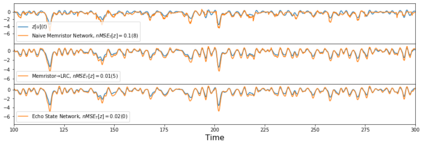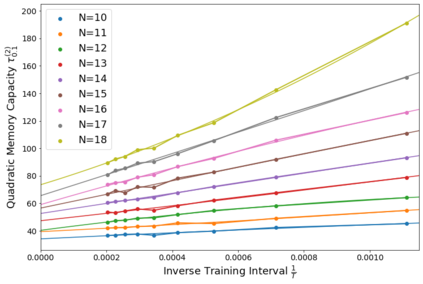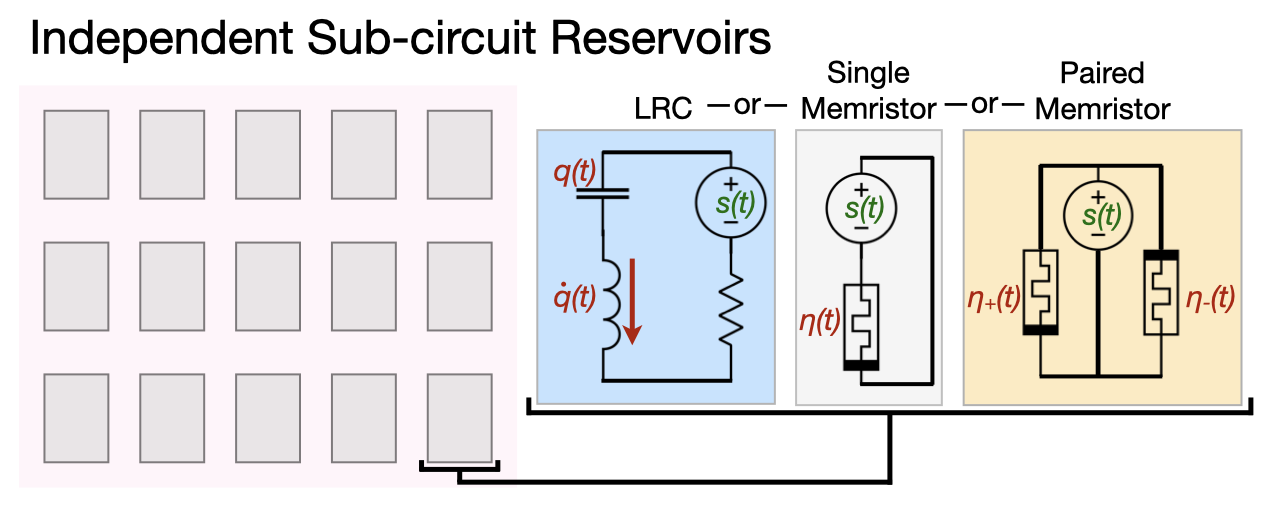Reservoir computing is a machine learning paradigm that uses a high-dimensional dynamical system, or \emph{reservoir}, to approximate and predict time series data. The scale, speed and power usage of reservoir computers could be enhanced by constructing reservoirs out of electronic circuits, and several experimental studies have demonstrated promise in this direction. However, designing quality reservoirs requires a precise understanding of how such circuits process and store information. We analyze the feasibility and optimal design of electronic reservoirs that include both linear elements (resistors, inductors, and capacitors) and nonlinear memory elements called memristors. We provide analytic results regarding the feasibility of these reservoirs, and give a systematic characterization of their computational properties by examining the types of input-output relationships that they can approximate. This allows us to design reservoirs with optimal properties. By introducing measures of the total linear and nonlinear computational capacities of the reservoir, we are able to design electronic circuits whose total computational capacity scales extensively with the system size. Our electronic reservoirs can match or exceed the performance of conventional "echo state network" reservoirs in a form that may be directly implemented in hardware.
翻译:储量计算是一种机器学习模式,它使用高维动态系统(emph{restoria})来估计和预测时间序列数据。储油层计算机的规模、速度和功率的使用可以通过从电子电路中建造储油层来提高,而若干实验研究也显示在这方面的前景。然而,设计优质储油层需要精确了解这种电路的处理和储存信息的方式。我们分析电子储油层的可行性和最佳设计,这些储油层既包括线性元素(储油层、导管和电容器),也包括非线性内存元素(光学、电容器和电容器),又包括称为光学分子。我们就这些储油层的可行性提供了分析结果,并通过审查它们能够估计的输入-输出关系类型,对其计算特性作出系统的描述。这使我们能够设计具有最佳特性的储油层。通过对储油层的全线性和非线性计算能力进行测量,我们能够设计出电子电路,其总计算能力与系统大小相当。我们的电子储油层可以匹配或超过常规的“电子状态”直接网络”硬件的性能,可以以某种形式被安装。

